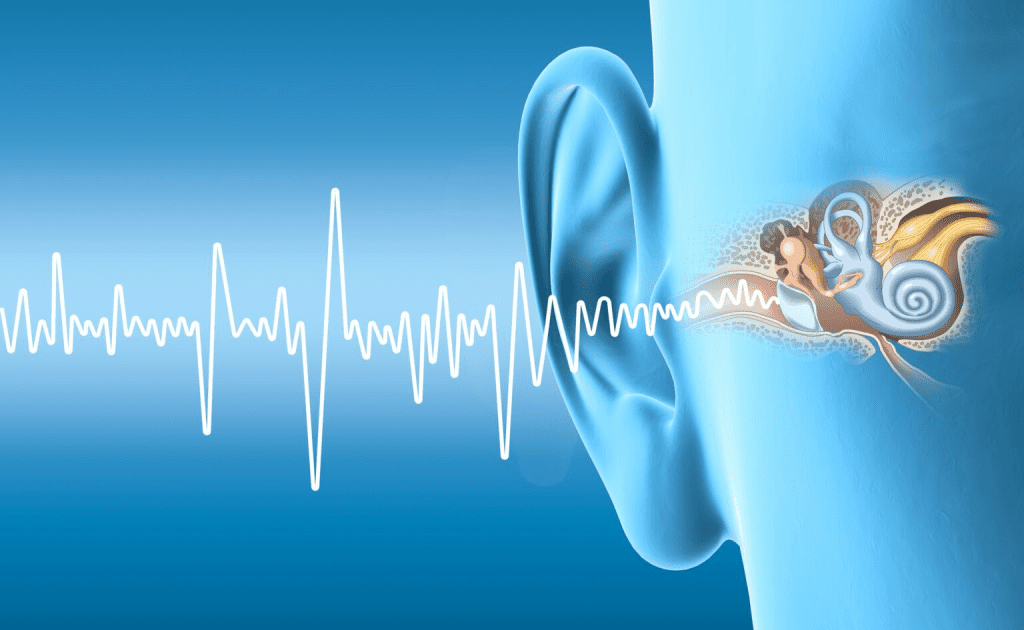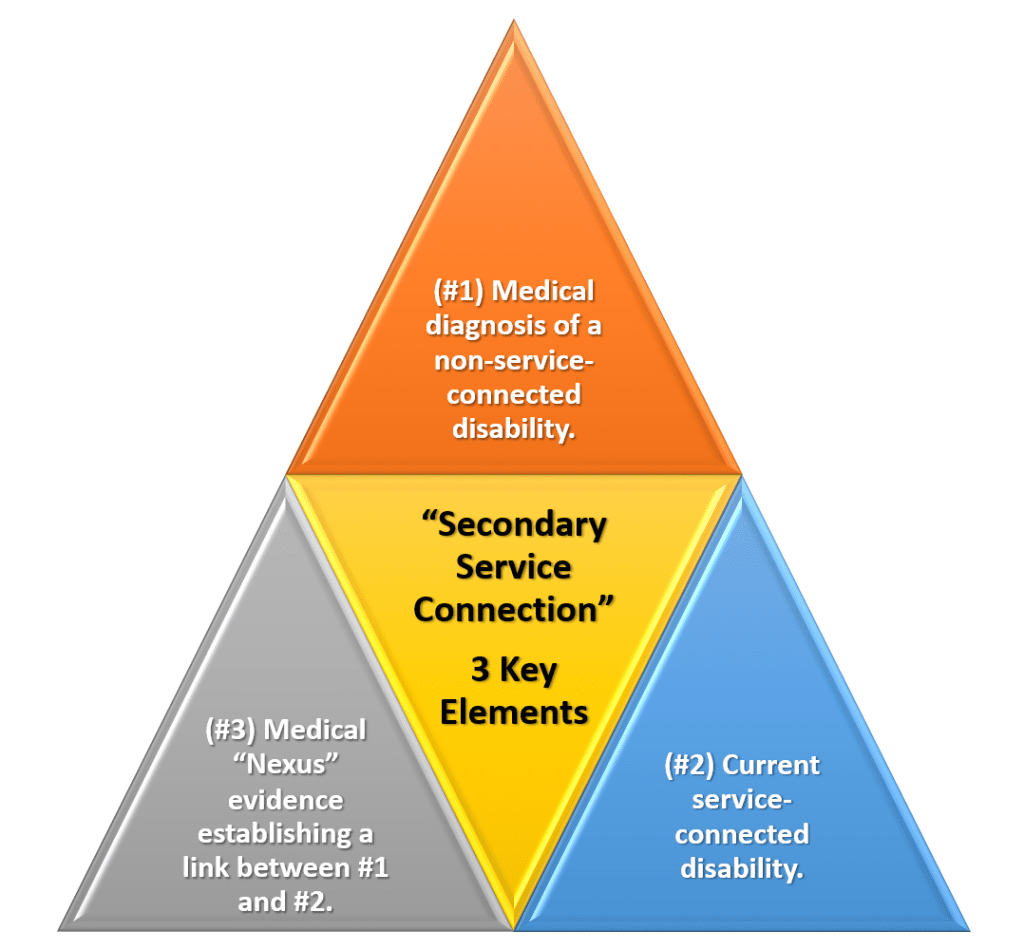Looking for Expert-Level VA Claim Answers?📱Call Us Now! 737-295-2226
Brian Reese here with VA Claims Insider, and in this “Insider’s Guide”, I’m going to reveal and explain how to get a VA Rating for Depression Secondary to Tinnitus.
You’ll also learn tips and strategies about secondary service connection as well as the “3 Magic Pillars” of success to include mission-critical medical evidence requirements.
Finally, you’ll discover how to get a high-quality Nexus Letter to help you prove secondary service connection under the law.
Okay, let’s jump in!
Table of Contents
Tinnitus and Depression VA Disability: Is There a Connection?

Yes, there is a strong correlation between veterans suffering from Tinnitus and the coexistence of Depression.
One medical research study found that many veteran patients with Tinnitus also exhibited both Depression and Anxiety.
In addition, these veteran patients suffered from more severe Tinnitus than did patients without Depression and Anxiety.
A deeper analysis revealed that 79.1% of the 91 veteran Tinnitus sufferers had a diagnosis of Anxiety, 59.3% had Depression, and 58.2% suffered from both Depression and Anxiety.
These findings align with research done by other otolaryngologists in the field, who found that the likelihood of someone developing lifetime depression and anxiety is significantly higher among individuals with Tinnitus than it is for the general population.
Severe, constant Tinnitus can make it difficult to accomplish routine daily tasks.
Despite the severe effects Tinnitus can have on your life, the maximum schedular disability rating for Tinnitus is only 10 percent.
However, due to the intense effects Tinnitus can have on daily living, some veterans with this condition are unable to hold “substantially gainful” employment based on Total Disability Individual Unemployability (also called “TDIU”).
Can I Service Connect My Depression Secondary to Tinnitus VA Disability?

Yes, Depression can be service-connected secondary to Tinnitus.
VA Disability Ratings for Depression are determined using the “General Rating Formula for Mental Disorders” in CFR 38, Part 4, the Schedule for Rating Disabilities.
This includes a scale of how severely your Depression negatively affects your daily ability to function.
Generally, your final VA Rating for Depression depends upon the “Severity of Your Symptoms,” as well as how those symptoms impact your Occupational and Social Impairment—meaning your work, your life, and your social functioning.
The VA Disability Ratings for Depression are as follows: 0%, 10%, 30%, 50%, 70%, or 100%.
A veteran may only have a 10% rating for Tinnitus but could possibly receive a 30%, 50%, 70%, or even 100% VA rating (lower or higher rating possible as well) for Depression secondary to Tinnitus.
VA Disability Ratings for Depression Explained:
5 Tips to Increase Your VA Rating for Depression
Medical Research Study:
BVA Case History Example:
Depression Secondary to Tinnitus is Granted
How the VA Rates Depression

The VA rates Depression under one of three Diagnostic Codes (DCs):
- #1: DC 9433 Persistent Depressive Disorder (Dysthymia)
- #2: DC 9434 Major Depressive Disorder
- #3: DC 9435 Unspecified Depressive Disorder
A diagnosis of Major Depressive Disorder requires at least two major episodes of Depression lasting at least two weeks.
In our experience, most veterans are rated under DC 9434, Major Depression Disorder, or DC 9435, Unspecified Depressive Disorder.
VA Ratings for Depression Secondary to Tinnitus

The average VA Rating for Depression is currently at 70%, but veterans can be rated from 0% to 100%, with breaks at 10%, 30%, 50%, and 70%.
VA Ratings for Depression secondary to Tinnitus depend on the severity of a veteran’s mental health symptoms, meaning, the more severe your symptoms (Frequency, Severity, and Duration) the higher the VA rating for Depression.
- Frequency means how often.
- Severity means how bad.
- Duration means how long.
| VA Rating for Depression Secondary to Tinnitus | VA Rating |
| Total occupational and social impairment, due to such symptoms as: gross impairment in thought processes or communication; persistent delusions or hallucinations; grossly inappropriate behavior; persistent danger of hurting self or others; intermittent inability to perform activities of daily living (including maintenance of minimal personal hygiene); disorientation to time or place; memory loss for names of close relatives, own occupation, or own name. | 100% |
| Occupational and social impairment, with deficiencies in most areas, such as work, school, family relations, judgment, thinking, or mood, due to such symptoms as: suicidal ideation; obsessional rituals which interfere with routine activities; speech intermittently illogical, obscure, or irrelevant; near-continuous panic or depression affecting the ability to function independently, appropriately and effectively; impaired impulse control (such as unprovoked irritability with periods of violence); spatial disorientation; neglect of personal appearance and hygiene; difficulty in adapting to stressful circumstances (including work or a worklike setting); inability to establish and maintain effective relationships. | 70% |
| Occupational and social impairment with reduced reliability and productivity due to such symptoms as: flattened affect; circumstantial, circumlocutory, or stereotyped speech; panic attacks more than once a week; difficulty in understanding complex commands; impairment of short- and long-term memory (e.g., retention of only highly learned material, forgetting to complete tasks); impaired judgment; impaired abstract thinking; disturbances of motivation and mood; difficulty in establishing and maintaining effective work and social relationships. | 50% |
| Occupational and social impairment with occasional decrease in work efficiency and intermittent periods of inability to perform occupational tasks (although generally functioning satisfactorily, with routine behavior, self-care, and conversation normal), due to such symptoms as: depressed mood, anxiety, suspiciousness, panic attacks (weekly or less often), chronic sleep impairment, mild memory loss (such as forgetting names, directions, recent events). | 30% |
| Occupational and social impairment due to mild or transient symptoms which decrease work efficiency and ability to perform occupational tasks only during periods of significant stress, or symptoms controlled by continuous medication. | 10% |
| A mental condition has been formally diagnosed, but symptoms are not severe enough either to interfere with occupational and social functioning or to require continuous medication. | 0% |
Should I Get a Nexus Letter for Depression Secondary to Tinnitus?

Yes, in our experience, you should get a Nexus Letter for Depression secondary to Tinnitus to help satisfy the third required element by law for VA secondary service connection.
Did you know you could be missing out on thousands of dollars of tax-free disability benefits you deserve by law, and not even realize that your current VA disability might be caused or aggravated by your service-connected Depression?
Click HERE now to join VA Claims Insider Elite, our premier education-based membership program, which also gets you discounted access to independent medical providers in our referral network for medical examinations, VA disability evaluations, and Medical Nexus Letters for a wide range of conditions!
Can I Get My Secondary VA Conditions Service Connected?

Yes, you can service-connect your conditions as secondary to one or more service-connected disabilities.
VA secondary conditions include any of the 900+ disabilities listed in CFR Title 38, Part 4, the Schedule for Rating Disabilities that can be service-connected SECONDARY to a current VA disability you’re already rated for at 0% or higher.
For example, let’s say you’ve got Tinnitus service-connected at 10%, but because of the severity of your Tinnitus, you’ve developed Depression.
You can open a new VA claim on the VA.gov website, file a claim for Depression Secondary to Tinnitus, and get service-connected and rated at 0%, 10%, 30%, 50%, 70%, or 100% for your Depression, depending on the Frequency, Severity, and Duration of your symptoms as well as how your symptoms negatively affect your work, life, and/or social functioning.
How Do I Establish Secondary Service Connection?
In accordance with 38 CFR § 3.310, disabilities that are proximately due to, or aggravated by, service-connected disease or injury, a current disability condition, which is proximately due to or the result of a service-connected disease or injury, shall be service-connected.
Service connection on a secondary basis requires a showing of causation.
A showing of causation requires that the secondary disability claim be shown to be “proximately due to” or “aggravated by” another service-connected disability.
There are three evidentiary elements that must be satisfied to service connect your VA Depression secondary to Tinnitus:

- #1. A medical diagnosis of the secondary disability condition you’re attempting to link secondary (e.g., a diagnosis of Depression) AND
- #2. A current service-connected primary disability (e.g., your current VA disability for Tinnitus) AND
- #3. Medical nexus evidence establishing a connection between your service-connected Tinnitus and the current disability you’re trying to connect, which in this case is Depression.
The FIRST part can be satisfied with any existing medical evidence in service treatment records, VA medical records, or any private medical records.
The SECOND part can be satisfied with a veteran’s existing service-connected disability rated at 0 percent or higher, which in this case, is Depression.
The THIRD part, and often the missing link needed to establish secondary service connection, can be satisfied with a credible Medical Nexus Letter (Independent Medical Opinion) from a qualified medical provider.
Veterans This is a MUST READ: Do I Need a Nexus Letter?
Truth bomb here veterans…
You could be missing out on thousands of dollars of tax-free disability benefits you deserve by law, and not even realize that your current VA disability might be caused or aggravated by your service-connected Depression.
Do You Deserve a VA Rating Increase? WE CAN HELP!
- VA Claims Insider is a highly rated, veteran-owned and operated business.
- 25,000+ disabled veterans served in our membership programs since 2016.
- Employs 144 teammates; comprised of 44 veterans and 12 military spouses.
- 4.7/5.0 average rating out of 3,500+ total reviews; over 2,500 5-star reviews.
About the Author

Brian Reese
Brian Reese is a world-renowned VA disability benefits expert and the #1 bestselling author of VA Claim Secrets and You Deserve It. Motivated by his own frustration with the VA claim process, Brian founded VA Claims Insider to help disabled veterans secure their VA disability compensation faster, regardless of their past struggles with the VA. Since 2013, he has positively impacted the lives of over 10 million military, veterans, and their families.
A former active-duty Air Force officer, Brian has extensive experience leading diverse teams in challenging international environments, including a combat tour in Afghanistan in 2011 supporting Operation ENDURING FREEDOM.
Brian is a Distinguished Graduate of Management from the United States Air Force Academy and earned his MBA from Oklahoma State University’s Spears School of Business, where he was a National Honor Scholar, ranking in the top 1% of his class.



